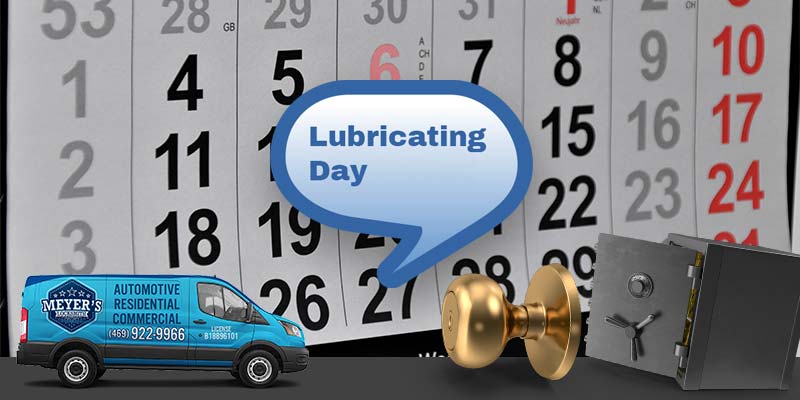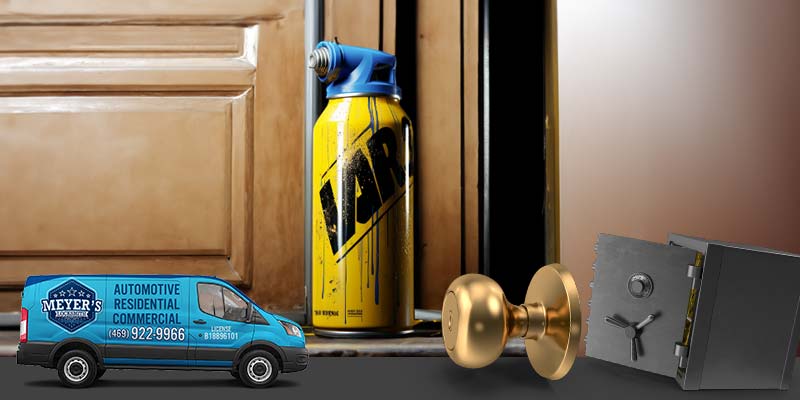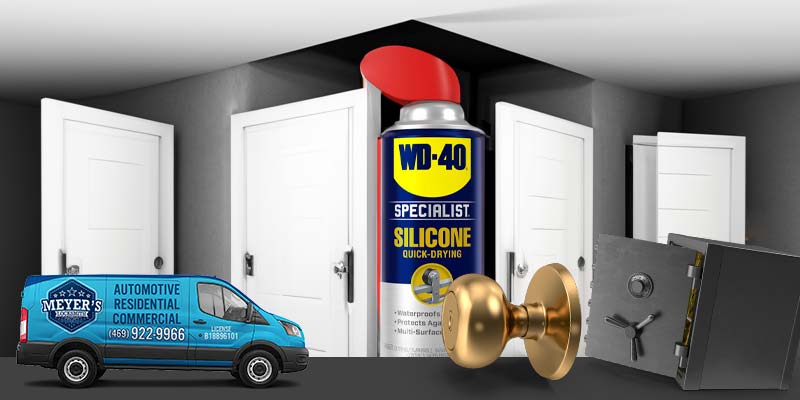The security of your home or business hinges on the effective functioning of your locks. A lock is not simply a purchase, but an investment in safety. Thus, ensuring their longevity through proper care and maintenance is crucial. This article will guide you through the best practices for maintaining your locks to extend their lifespan, covering a range of lock types, from traditional cylinder locks to sophisticated electronic security systems.
Regular Cleaning
For a lock to function properly, it needs to be kept clean. This is especially true for Yale commercial locks or other high-security locks. Dust and grime can accumulate in the keyhole, causing the lock to become stiff or difficult to use. To clean your lock:
- Use a mild cleaner that won’t corrode the metal.
- Spray a small amount onto a cloth and gently wipe the lock’s surface.
- For the keyhole, consider using a can of compressed air to blow out any debris.
Proper Lubrication
Just like any other mechanical device, locks need lubrication to operate smoothly. A dry lock can lead to a key that’s hard to turn or, worse, a key that breaks off inside the lock. Lubricating your locks annually or every six months in harsher climates is a good rule of thumb. A graphite lubricant, which is available in most hardware stores, is recommended for Schlage locks and other similar products.
Ensuring Correct Alignment
Locks function by aligning internal mechanisms to allow a key to turn. Over time, door frames can shift slightly due to changes in weather or natural settling of the building. This can cause misalignment of the lock with the keyhole, causing it to work less effectively. If you’re in Frisco, TX, or surrounding areas and notice your locks are becoming increasingly difficult to operate, professional locksmith services like our Locksmith Frisco, TX, service can assist with realigning your locks to ensure they work smoothly.
Electronic Lock Maintenance
Electronic locks, which might be part of a more comprehensive 2023 secure locks for your home system, require a different set of maintenance practices. Keeping the electronic components clean and dry is essential. Regularly replace batteries to ensure optimal functioning. For software-based locks, ensure your system is regularly updated to benefit from the latest security enhancements and bug fixes.
Professional Inspections
While many aspects of lock maintenance can be performed by the owner, there’s no substitute for professional inspections. A professional locksmith, like those at Meyers Local Locksmith, can identify and fix any developing issues before they become serious problems. Professional locksmiths can also provide important maintenance services, such as lock rekeying, which can be critical if you’ve recently moved into a new home or lost a set of keys.

FAQs on Lock Maintenance
What is best to lubricate a door lock?
Graphite powder is commonly considered the best lubricant for door locks. It doesn’t attract dust or grime, which can accumulate over time and cause your lock to become sticky or difficult to use.
How often do you lubricate a door lock?
For optimal function, it’s recommended to lubricate door locks once or twice a year. However, in areas with harsher climates or in heavy-use situations, locks might need lubrication more often.
How do you lubricate a house door lock?
The process is simple. Use a graphite-based lubricant, and apply it to the key. Insert the key into the lock, and turn it several times to distribute the lubricant inside the lock mechanism. Be careful not to use too much to avoid any buildup inside the lock.
Is it OK to spray WD40 in a lock?
While WD-40 has numerous uses, it is not the best choice for lock lubrication. Over time, it can attract dust and grime, leading to a sticky or blocked lock. It’s better to use graphite-based lubricants for door locks.

Can you use Vaseline to lubricate a door lock?
It’s not recommended to use Vaseline as a lock lubricant. Like WD-40, it can attract dust and grime, leading to more problems down the road.
Is silicone spray good for door locks?
Silicone spray is an acceptable choice for door locks. It won’t attract as much dirt as oil-based lubricants. However, graphite powder is still the preferred option.
Should you oil a door lock?
Using light machine oil can help in a pinch, but it should not be your go-to solution. Oil can gum up the lock over time as it attracts dust and other particles.
Is 3 in 1 oil good for door locks?
3 in 1 oil can work, but it isn’t the best choice. Like other oil-based lubricants, it can attract dust and cause issues down the road.
Can I use olive oil to lubricate the door lock?
Olive oil should not be used to lubricate door locks. It’s not designed for such use and can gum up the lock mechanism, leading to more damage over time.

When should you not use WD-40?
Avoid using WD-40 on door locks, as it can attract dust and grime and cause blockage over time. It’s best used for its original purpose – water displacement.
How do you fix a hard-to-turn lock?
First, try cleaning and lubricating the lock using the methods described above. If the problem persists, it’s best to call a professional locksmith to inspect and repair the lock. There may be internal damage or alignment issues that require expert attention.
What is the difference between silicone spray and lubricant?
Silicone spray is a type of lubricant. It’s an aerosol product that contains silicone—a waterproof material that remains slippery even when dry. On the other hand, ‘lubricant’ is a broad term that includes any substance used to reduce friction between surfaces, like oil, grease, or graphite powder. The best choice depends on the application in question.

Final Thoughts
Proper maintenance extends the lifespan of your locks and ensures that they function as intended to keep you, your family, and your possessions safe. Remember, professional guidance is just a call away if you’re looking for a residential locksmith in McKinney or mobile locksmith services in Melissa, Plano, Anna, Allen, or Fairview.
When it comes to your locks, don’t leave things to chance. Frequent maintenance, performed correctly, can be the difference between a lock that serves as a minor inconvenience to burglars and one that stands as a formidable barrier to your home or business.
Just as you’d regularly service your car to keep it running smoothly, so should you periodically service your locks to keep them operating optimally. Cleaning, lubricating, ensuring alignment, and keeping up with professional inspections are all essential parts of a comprehensive lock maintenance routine.
Above all, consider the peace of mind that well-maintained locks can bring. Knowing that you’ve done everything you can to secure your home or business can make a significant difference to your comfort and well-being. So, stay informed, stay prepared, and stay safe. Your locks are a vital part of your security infrastructure, and they deserve the best care they can get.
Remember, it’s not just about extending the lifespan of your locks, it’s about enhancing your security and peace of mind. After all, the safety of your family and property is paramount, and well-maintained locks are a crucial part of that equation. Trust in Meyers Local Locksmith, your local locksmith in McKinney and surrounding areas, for all your lock maintenance and security needs.



